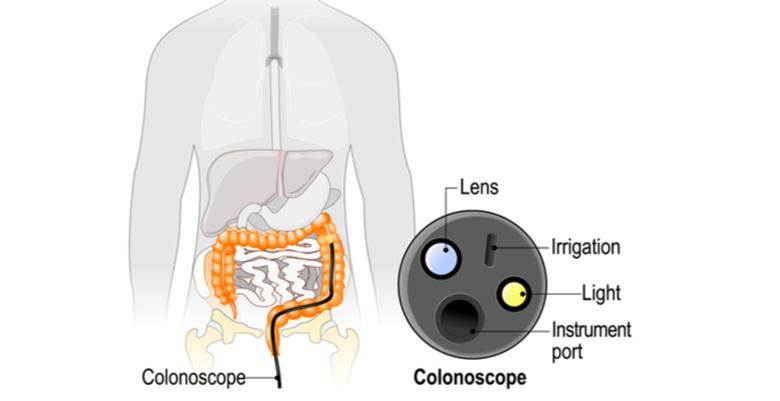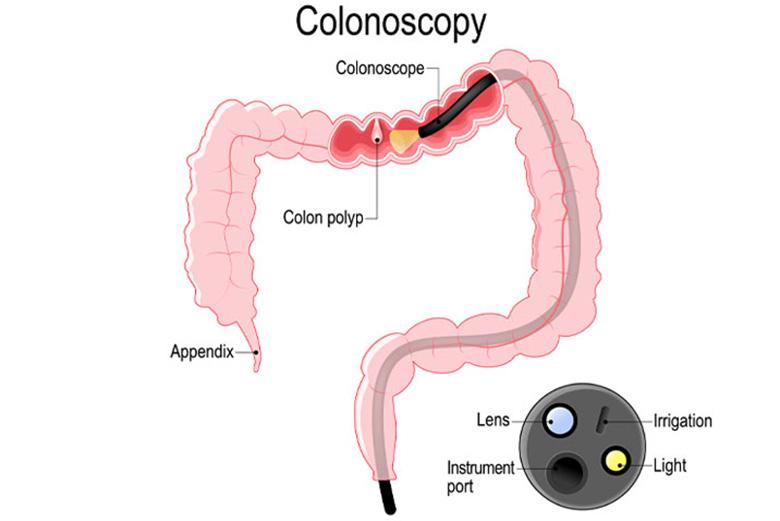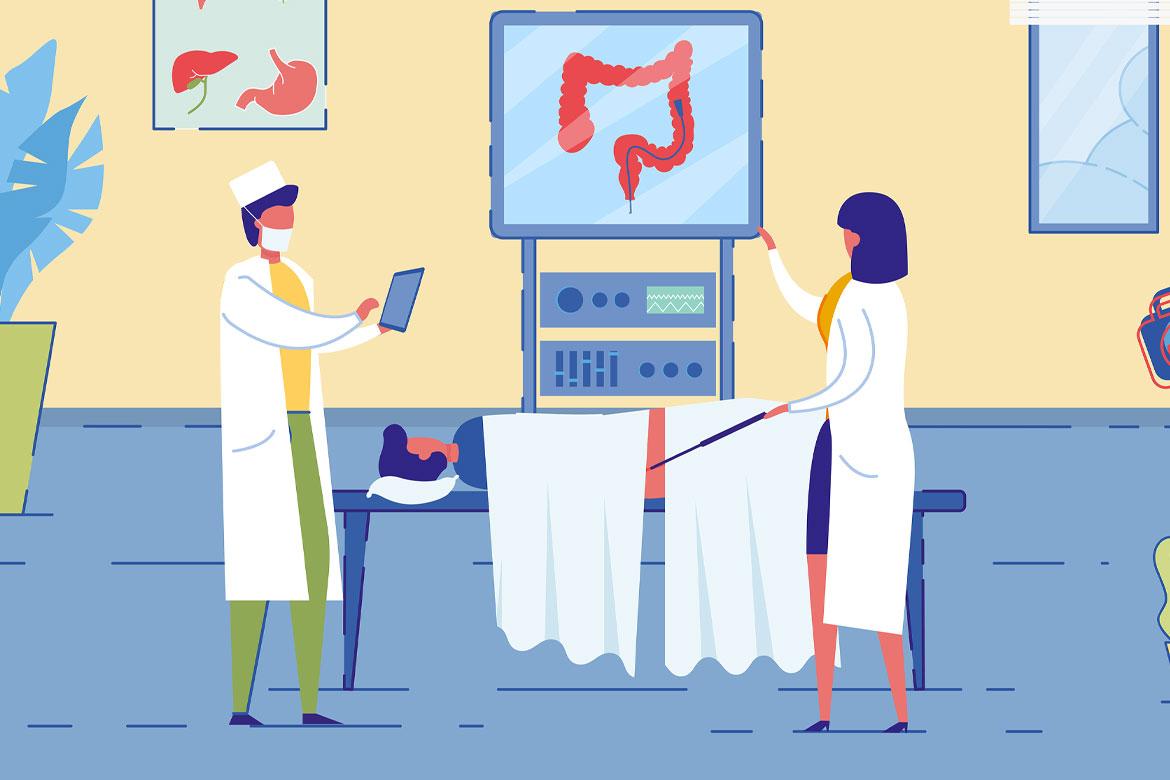What is a colonoscopy?

A colonoscopy is a procedure used to detect changes or abnormalities in the colon and rectum. The colon, or large intestine, is part of your digestive system. It connects the small intestine to the rectum.
How it works

During a colonoscopy, a long and flexible tube called a colonoscope is inserted through the anus and carefully pushed into the rectum and colon. A tiny video camera at the tip of the tube allows the doctor to view the inside of the entire colon.
This procedure is usually done under sedation for the patient's comfort.
Why do you need a colonoscopy?
Your doctor might recommend a colonoscopy if you have symptoms that suggest potential abnormalities in your colon or rectum.
These symptoms include:
- Rectal bleeding
- Blood in the stool
- Changes in bowel habits such as constipation or diarrhoea
- Abnormal weight loss
- Abdominal pain
Screening for cancer
Colonoscopy is also a screening method for colon cancer, colon polyps and inflammatory bowel diseases.
Consider going for a colonoscopy if you:
- Are above 45 years old
- Have a family history of colon cancer
What are the risks and complications of a colonoscopy?
A colonoscopy is considered to be a safe procedure. Risks such as adverse reaction to the sedative, bleeding from the biopsy site or perforation of the colon or rectum wall are rare. Less than 1% of patients suffer from these complications.
How do you prepare for a colonoscopy?
Your colon needs to be cleared before a colonoscopy. This is to ensure that the colonoscope can capture a clear and unobstructed view of your colon and rectum.
Before your colonoscopy, you will be:
- Asked to refrain from solid foods and consume only clear liquids the day before
- Placed on an overnight fast
- Given a laxative to empty or clear your colon
Your doctor will emphasise and explain the various aspects of bowel preparation. Learn more about preparing your bowels before a colonoscopy.
What can you expect in a colonoscopy?
You will be given a sedative before your colonoscopy. Sometimes, pain medication will also be given to minimise any discomfort.
During the procedure
You will be asked to:
- Change into a gown for the procedure.
- Lie on your side
The doctor will insert a colonoscope into your rectum. The scope contains a small light and camera at its tip, and a tube to pump small amounts of air or carbon dioxide to inflate the colon and get a better view of the colon lining. The camera sends images to an external monitor so that the doctor can study the inside of your colon.
After the procedure
You may take an hour or so to recover from the effects of the sedative. Do arrange for someone to drive you home after the recovery period.
As the full effects of the sedative may take up to a day to wear off, avoid the following for the rest of the day:
- Drive
- Make any important decisions
- Return to work
Consult your doctor if you continue to pass blood or blood clots or if you have persistent abdominal pain or a fever.












